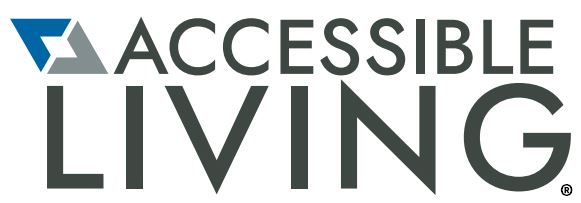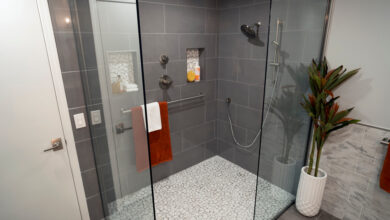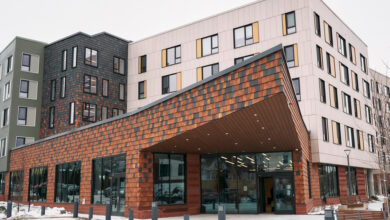Moen Shares Universal Design Tips to Improve Kitchen & Bath Accessibility
When correctly implemented, universal design principles lead to enhanced experiences for all who live in and visit a home. From guests in a wheelchair who need more room to move about to a pregnant mother who may need a little more support in the tub to an aging grandparent with arthritis who finds it easier to use his or her voice to open the smart blinds than their hands, universal design benefits people of all ages and abilities.
“At Moen, we understand how essential it is to create accessible spaces that enhance functionality for daily routines with products that also integrate seamlessly into the home,” said Julie Parker, senior territory manager, Moen. Whether it’s through bathroom accessories like our toilet paper holders and grab bars, or touchless technology in our Smart Kitchen Faucets, it’s important elements that promote accessibility add to a home’s functionality without detracting from the house’s aesthetic.”
A step further: ADA-compliant homes
While universal design offers a framework for creating inclusive spaces, creating more ADA- compliant homes provides even greater opportunities to promote independence and improved quality of life for residents. Recently, Moen was fortunate to see the benefits of an ADA-compliant home in action by participating in a life-changing experience for an individual in need.
In early 2024, local Stanford, Kentuckian Cindy Mullins faced a transformative experience – what started as a routine kidney stone procedure quickly became a critical situation that resulted in the loss of both her legs and hands. After hearing her heart-wrenching story, a group of contractors, volunteers and design pros, including designer Liz Betack of Liz Betack Design Studio, came together to design a brand-new, fully accessible home for Mullins and her family – all completed in 10 days.
Through its partnership with supplier Showplace at Lexington Winnelson, Moen joined the project by providing various smart and ADA-compliant products to help make life easier for Mullins and her family as they adjusted to their new normal.
“Everyone deserves accessible living and to be comfortable in their own home,” said Patricia Ramey, vice president, category management, Moen. “We are so grateful to be part of Cindy’s life and help her during this transition, leveraging our products and innovations to pave the way for a more functional day-to-day experience with water.”
In the kitchen, a smart faucet allows Mullins to use voice commands through a smart speaker to operate the fixture, a function helpful for individuals with limited fine motor skills or those who find it difficult to adjust traditional faucet handles. For the bathroom – one of the most important rooms for ADA-compliance due to mobility and dexterity challenges many face in this space – Mullins’ home includes faucets that feature a sensor on the side that allows users to turn the faucet on and off without touching it, ideal for someone with limited mobility.
An advanced, Wi-Fi enabled, digital shower offers mobile connectivity and personalization, providing countless ways to create the ideal showering experience. The voice-activated control and preset options make daily routines less of a safety concern and less challenging. These fixtures throughout the home provide an added level of simplicity and automation to drastically improve the functionality of Mullins’ kitchen and bath spaces.
Incorporating design principles and products that promote inclusivity and accessibility help foster more welcoming, functional environments for individuals of all abilities. By prioritizing universal design and ADA-compliance in homes, brands and pros, alike can do their part to create beautifully designed, practical spaces that give all types of people a better quality of life.




